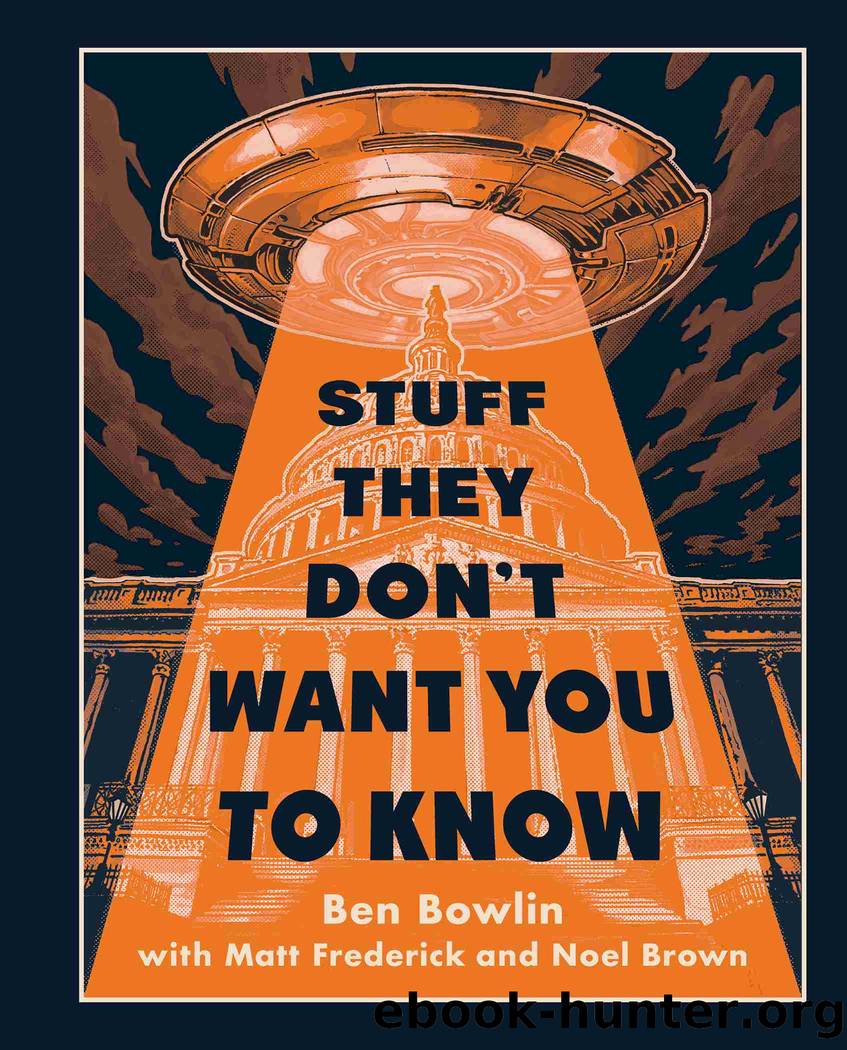Stuff They Don't Want You to Know by Ben Bowlin

Author:Ben Bowlin
Language: eng
Format: epub
Publisher: Flatiron Books
FAKE NEWS
ACCORDING TO INVESTIGATIVE JOURNALIST Sharyl Attkisson, the modern meaning of âfake newsâ was popularized by a left-wing website called First Draft News, which was established in 2015 to correct the false, misleading, or erroneous reports disseminated by conservative sources proliferating on social media platforms. Though the website was originally founded as a news watchdog, its lasting legacy has been coining a phrase former US president Donald Trump has wielded as a thought-terminating cliché7 used to dismiss or discredit any piece of reporting he personally disagreed with.
As with virtually all forms of propaganda, the use of âfake newsâ is an old technique. In the age of the Spanish Armada, for instance, both the Spanish and English monarchies deployed fake reports of sea battles and other conflicts, spinning the narrative in ways they felt would be most advantageous to their goals. The only real difference between what we call fake news today and the propaganda of ages past is the medium of communication. For the first time in human history, we live in an era of constant, nearly instantaneous communication, in which we are besieged by an endless deluge of news, knowledge, purported facts, and claims from across the planet. The democratization of information and the ease of broadcasting oneâs thoughts to mass audiences has allowed everyone to become a performer, reporter, and publisher. This presents clear benefits, and clear dangers. Today, itâs easier than ever to call someone in Chile all the way from Sweden, and speak in real time. Never before has it been so easy to acquire information. You can, for example, have a conversation about the periodic table or a pop song from the 1960s, then pull out your phone instantly to learn more details. Current estimates reckon the human species is generating about 1.145 trillion megabytes of data per day, every dayâand the number will only rise going forward. Additionally, a single personânot necessarily a professional broadcaster, professor, or public figureâcan instantly broadcast to millions over social media platforms.
It is impossible to overstate the significance of these technological changes. Like the discovery of fire, the invention of constant communication poses as much danger as it does opportunity. While the amount of information available has skyrocketed, the constraints of the human brain have remained unchanged. Our minds have evolved to recognize patterns and already relied heavily on cognitive shortcuts to navigate the natural, pre-electronic world. Now the poor human cerebrumâidentical to that of our human ancestors living tens of thousands of years agoâis like a sailor in a hurricane, drowning in a chaotic torrent of advertisements, proposals, declarations, and propaganda. Today we spend about a third of our lifespan digesting knowledge. If you stayed awake for the rest of your life, without eating, without being distracted, and you lived for a thousand years, you as an individual would still never finish reading everything available online. Reading the entirety of Wikipedia alone would take about twenty years, if you somehow spent those two decades doing nothing but reading.
This
Download
This site does not store any files on its server. We only index and link to content provided by other sites. Please contact the content providers to delete copyright contents if any and email us, we'll remove relevant links or contents immediately.
Cecilia; Or, Memoirs of an Heiress — Volume 1 by Fanny Burney(32527)
Cecilia; Or, Memoirs of an Heiress — Volume 2 by Fanny Burney(31928)
Cecilia; Or, Memoirs of an Heiress — Volume 3 by Fanny Burney(31916)
The Great Music City by Andrea Baker(31901)
We're Going to Need More Wine by Gabrielle Union(19020)
All the Missing Girls by Megan Miranda(15891)
Pimp by Iceberg Slim(14464)
Bombshells: Glamour Girls of a Lifetime by Sullivan Steve(14038)
For the Love of Europe by Rick Steves(13821)
Talking to Strangers by Malcolm Gladwell(13332)
Norse Mythology by Gaiman Neil(13317)
Fifty Shades Freed by E L James(13216)
Mindhunter: Inside the FBI's Elite Serial Crime Unit by John E. Douglas & Mark Olshaker(9298)
Crazy Rich Asians by Kevin Kwan(9262)
The Lost Art of Listening by Michael P. Nichols(7476)
Enlightenment Now: The Case for Reason, Science, Humanism, and Progress by Steven Pinker(7288)
The Four Agreements by Don Miguel Ruiz(6728)
Bad Blood by John Carreyrou(6601)
Weapons of Math Destruction by Cathy O'Neil(6248)
